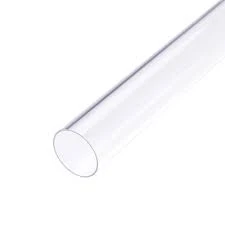nov . 07, 2024 07:00 Back to list
Exploring the Benefits and Applications of PVC Electrical Pipes in Construction and Wiring
Understanding PVC Electrical Pipes An Essential Component in Modern Wiring Systems
PVC (Polyvinyl Chloride) electrical pipes have gained immense popularity in both residential and commercial construction due to their durability, versatility, and affordability. As the world moves towards more efficient and sustainable building practices, understanding the role of PVC electrical pipes becomes crucial for electricians, builders, and homeowners alike.
What are PVC Electrical Pipes?
PVC electrical pipes are rigid conduits made of polyvinyl chloride, a synthetic plastic polymer. These pipes are designed specifically to protect and route electrical wiring in various applications. The lightweight nature of PVC allows for easy handling and installation, which is one of the reasons for its widespread use in electrical systems.
Benefits of Using PVC Electrical Pipes
1. Durability and Longevity One of the standout features of PVC electrical pipes is their resistance to corrosion, impact, and weather conditions. Unlike metal conduits that may rust or corrode over time, PVC pipes maintain their integrity and performance over long periods. This durability makes them an ideal choice for both indoor and outdoor applications.
2. Cost-Effectiveness PVC is significantly cheaper than many other materials commonly used in electrical installations, such as metal conduits. Its affordability makes it an attractive option for budget-conscious projects without compromising on quality.
3. Ease of Installation The lightweight nature of PVC pipes makes them easy to handle and install. Electricians can quickly cut and shape PVC pipes to fit various configurations, reducing installation time and labor costs. Additionally, the smooth interior surface of PVC minimizes the risk of damage to wires during installation.
4. Electrical Insulation PVC has excellent insulating properties, making it suitable for electrical applications. It helps prevent electrical shorts and provides a safe pathway for wires, reducing the risk of fires caused by electrical faults.
5. Chemical Resistance PVC pipes are resistant to many chemicals, which makes them suitable for various environments where exposure to potentially harmful substances may occur. This resistance adds another layer of protection for electrical wires and systems.
Applications of PVC Electrical Pipes
PVC electrical pipes are used in a wide range of applications, including
pvc electrical pipe

- Residential Wiring Homeowners often use PVC conduits to protect wiring during construction or renovation projects. They are commonly found in walls, attics, and crawl spaces.
- Commercial Buildings PVC electrical pipes are equally popular in commercial construction, where they are employed in various electrical systems, including lighting, power distribution, and telecommunications.
- Outdoor Installations PVC pipes are suitable for outdoor applications, such as landscape lighting or running wires in external environments. Their resistance to weather conditions ensures that the electrical components remain protected.
- Industrial Applications In industrial settings, PVC conduits are utilized to protect and organize electrical wiring in factories and manufacturing plants, ensuring safety and efficiency.
Installation Guidelines
To ensure a successful installation of PVC electrical pipes, it is vital to follow certain guidelines
1. Adhere to Local Codes Always make sure that the installation complies with local building codes and regulations. These codes often dictate the types of materials and installation techniques that can be used.
2. Use Proper Fittings When connecting PVC pipes, use appropriate fittings to ensure tight seals and proper alignment. This minimizes the risk of damage and protects the wiring from external elements.
3. Avoid Overheating Although PVC can withstand high temperatures, it is essential to avoid exposing the pipes to extreme heat during installation. Use caution when cutting or joining pipes to prevent melting.
4. Secure the Pipes Properly support and secure PVC pipes at adequate intervals to prevent sagging or movement, which can lead to potential damage over time.
Conclusion
PVC electrical pipes play a vital role in modern electrical installations, offering a combination of durability, cost-effectiveness, and ease of use. By understanding the benefits and applications of PVC conduits, builders and electricians can make informed decisions that contribute to safer and more efficient electrical systems. As we continue to innovate and improve construction practices, PVC electrical pipes remain a reliable choice in ensuring that our spaces are well-lit and electrically sound.
-
High-Quality PPR Pipes and Fittings Durable ERA PPR & PVC PPR Solutions
NewsJul.08,2025
-
Black HDPE Cutting Board - Durable, Non-Porous & Food Safe HDPE Plastic Cutting Board
NewsJul.08,2025
-
High-Quality CPVC Panel Durable HDPE & PVC Panels Supplier
NewsJul.08,2025
-
Double PE Welding Rod Supplier - High Strength, Durable & Versatile Welding Solutions
NewsJul.07,2025
-
High-Quality PVC-O Pipe Supplier Durable 75mm PVC Pipe & Connections Leading PVC Pipe Company
NewsJul.07,2025
-
HDPE Drainage Pipe Supplier – Durable & Corrosion-Resistant Solutions
NewsJul.06,2025

